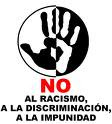
Sonia Sotomayor has been a judge of the United States Court of Appeals for the Second Circuit since 1998. Before joining the appeals court, she served as a United States District Court judge for the Southern District of New York. On May 26, 2009, White House officials said that she was President Obama's choice to replace Justice David H. Souter, who plans to retire from the Supreme Court in June.
In what may be her best-known ruling, in April 1995 Judge Sotomayor issued an injunction against major league baseball owners, effectively ending a baseball strike of nearly eight months, the longest work stoppage in professional sports history, which had led to the cancellation of the World Series for the first time in 90 years.
On the district court bench, Judge Sotomayor earned a reputation as a sharp, outspoken and fearless jurist, someone who does not let powerful interests bully, rush or cow her into a decision. "She does not have much patience for people trying to snow her," said one lawyer in 1995, who had cases pending before the judge and asked not to be identified. "You can't do it."
While still in her 30s, Judge Sotomayor became the youngest judge in the Southern District of New York. She was the first American of Puerto Rican descent to be appointed to the Federal bench in New York City.
Born in the Bronx on June 23, 1954, she was diagnosed with diabetes at the age of 8. Her father, a factory worker, died a year later. Her mother, a nurse at a methadone clinic, raised her daughter and a younger son on a modest salary.
Judge Sotomayor graduated from Princeton University summa cum laude in 1976 and became an editor of the Yale Law Journal. She spent five years as a prosecutor with the Manhattan District Attorney's office before entering private practice.
But she longed to return to public service, she said, inspired by the "Perry Mason" series she watched as a child. In 1992, Senator Daniel Patrick Moynihan recommended the politically centrist lawyer to President George H. W. Bush, making good on a longstanding promise to appoint a Hispanic judge in New York.
On the Circuit Court, she has been involved in few controversial issues like abortion. Some of her most notable decisions came in child custody and complex business cases. Her most high-profile case involved New Haven's decision to toss out tests used to evaluate candidates for promotion in the fire department because there were no minority candidates at the top of the list.
She was part of a panel that rejected the challenge brought by white firefighters who scored high but were denied promotion. Frank Ricci, the lead plaintiff, argued that it was unfair he was denied promotion after he had studied intensively for the exam and even paid for special coaching to overcome his dyslexia.
The case produced a heated split in the Circuit Court and is now before the Supreme Court.
While Judge Sotomayor is not seen as an extreme liberal or a crusader on the bench, she has made some remarks that are likely to draw fire from Republicans during the confirmation process.
In 2001, she gave a speech declaring that the ethnicity and sex of a judge "may and will make a difference in our judging.” In her speech, at a conference on diversity, Judge Sotomayor questioned the famous notion - often invoked by Justice Ruth Bader Ginsburg and her retired Supreme Court colleague, Sandra Day O'Connor - that a wise old man and a wise old woman would reach the same conclusion when deciding cases.
"I would hope that a wise Latina woman with the richness of her experiences would more often than not reach a better conclusion than a white male who hasn't lived that life," said Judge Sotomayor.
Another statement that has already drawn criticism from conservative bloggers came on a video that surfaced in May of Judge Sotomayor asserting in 2005 that a "court of appeals is where policy is made." She then immediately adds: "And I know - I know this is on tape, and I should never say that because we don't make law. I know. O.K. I know. I'm not promoting it. I'm not advocating it. I'm - you know."
The video was of a panel discussion for law students interested in becoming clerks, and she was explaining the different experiences gained when working at district courts and appeals courts.
And a memorandum on Judge Sotomayor prepared by conservative groups pooling research on potential nominees cites a ruling in which she said a man could sue a private corporation for violating his constitutional rights while acting as a government contractor. Her decision was reversed by the Supreme Court, which said only individual agents, not corporations, may be sued for such violations
Fuente: The NY Times.
Foto AP



















No hay comentarios:
Publicar un comentario